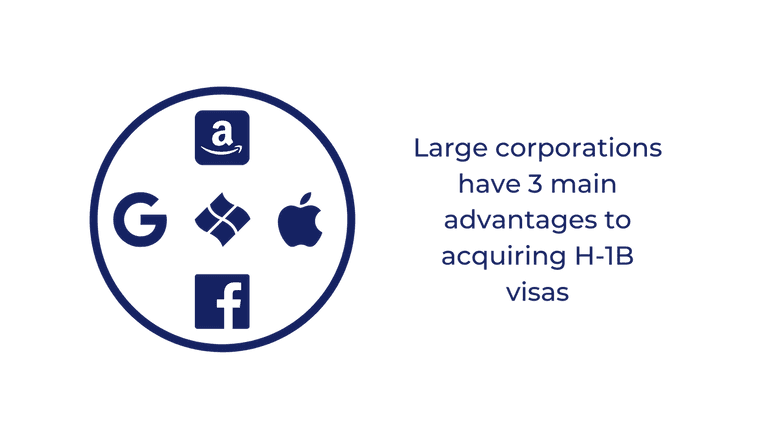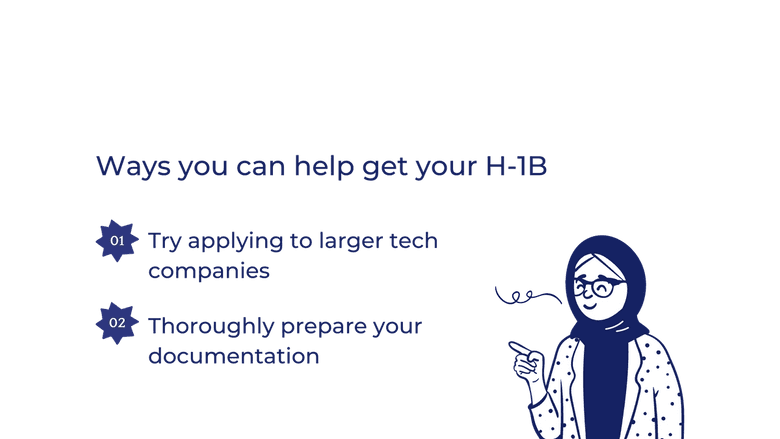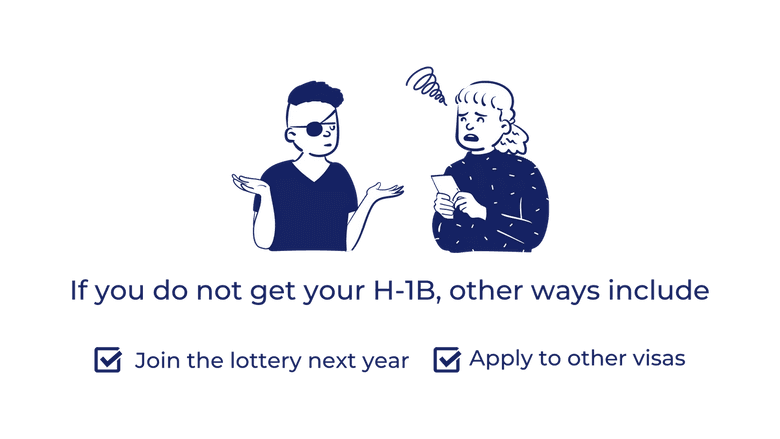Hacking the H-1B: How big tech companies still get 99% of the work visas they need under Trump
Despite the Trump administration’s crackdown on H-1B visas, major tech companies still manage to attain a surprisingly high rate of visa approvals.
UPDATE: President Trump tweeted that he will sign an Executive Order temporarily suspending immigration into the United States. It is unclear at present how this will impact H-1B.
With H-1B visa denial rates rising from 6% in 2015 to 24% in 2018, many immigrant tech workers and job seekers are increasingly concerned about their future in the United States. But despite the Trump administration’s immigration policies, tech giants such as Apple, Google, and Facebook were still able to get 99% of their H-1B visa applications approved in 2018--in comparison to the 76% average. In fact, while outsourcing and staffing giants such as Cognizant Tech Solutions and Infosys have suffered from much higher denial rates, major tech companies have been getting more H-1B visas approved than before.
Big Tech Companies have Several Key Advantages

Financial Advantage
A major reason that companies like Amazon and Microsoft are able to achieve a 99% H-1B approval rate is their ability to pay for
- Top-notch immigration lawyers with a track record of high approval rates
- The necessary human resources support and application fees.
The demand for expert immigration lawyers in tech is shown by the growth of immigration law firms in Silicon Valley focused on H-1B and other work visas.
Specialty Occupation Advantage
Another reason that tech giants have higher approval rates is that the nature of their work lends itself to passing the specialty occupation rule, which requires the job to have a certain level of complexity or uniqueness. Additionally, big tech companies are also more able to afford to hire highly experienced tech workers, who are more likely to pass the specialty occupation rule.
Using a Two-Pronged Approach
Major tech companies also use a two-pronged approach to maximize their H-1B approvals. They apply on behalf of H-1B candidates directly and retain staffing firms to apply on behalf of candidates. Using outsourcing and staffing firms like Capgemini and Ernst & Young allows tech companies to hire foreign workers with more varied skills and be less involved in the onboarding and offboarding administration.
How to Increase Your Chances of H-1B Visa Approval

Apply to Tech Giants
You may be able to increase your chances by applying to a technical role at one of the above tech giants with a 99% approval rate: Google, Facebook, Apple, Amazon, Microsoft, and Intel. For example, someone who is applying as an incoming soft engineer at Google will likely have a higher chance of approval than someone applying in an entry-level, non-technical role at a smaller company. Also, note that not all big tech companies are the same when it comes to H-1B approval rates. IBM, for instance, has a relatively lower 92% approval rate.
Prepare for Every Situation
It is crucial that you are thorough and overly prepared with documentation in your H-1B application. In particular, you should try to avoid a Request for Evidence (RFE) at all costs. In recent years, the government has increased the issuing of RFEs, requesting companies to prove their sponsored candidates have special training or education that makes them uniquely qualified for the job. If you’re not thorough and accurate with the documents you provide, a new policy in place allows immigration officials to directly deny your application instead of issuing an RFE.
You can also provide evidence that the position is sophisticated and complex. Do this by showing ads for comparable positions in the same geographic area and for similar pay that require advanced degrees, or show evidence that your company has required advanced degrees for the same position in the past.
What if You’re Not Selected in the H-1B Visa Lottery?

If you’re not selected, don't lose hope yet. You have several options. You can reapply next year and your company can sponsor you for an H-1B again because there’s no limit on the number of years you can be entered in the lottery, whether you’re inside or outside the U.S. and whether you’re currently employed by them or not. Some people wait up to 10 years before they receive their H-1B visas.
You can also look into other visa options, including the following:
- L-1 Visas: If your employer has an office outside of the U.S. and you can legally work in that overseas office for 12 months or more, your employer can then transfer you back to the U.S. under an L-1A visa (for executives and managers) or an L-1B visa (for employees with specialized knowledge). As an additional benefit, there are no annual quotas for L-1 visas, and they are also “dual intent” and can lead to a green card.
- O-1A Visa: If you have “extraordinary ability” in the sciences, business, or education, you may be eligible for an O-1A. Note that the bar for qualifying for an O-1A is higher than for an H-1B.
- J-1 Visa: Most employers cannot directly sponsor an individual for a J-1 visa, which is a work-and-study exchange program. The government allows certain public and private organizations like universities to supervise the exchange programs and application process, which can then be used to support a J-1 at a designated company.
- F-1 Visa: Some graduate programs require Curricular Practical Training (CPT) or allow Optional Practical Training (OPT). If you are studying under an F-1 Visa, you could work in your field of study through these programs.
The information provided herein is for general informational purposes only and is not intended to provide tax, legal, or investment advice and should not be construed as an offer to sell, a solicitation of an offer to buy, or a recommendation of any security by Candor, its employees and affiliates, or any third-party. Any expressions of opinion or assumptions are for illustrative purposes only and are subject to change without notice. Past performance is not a guarantee of future results and the opinions presented herein should not be viewed as an indicator of future performance. Investing in securities involves risk. Loss of principal is possible.
Third-party data has been obtained from sources we believe to be reliable; however, its accuracy, completeness, or reliability cannot be guaranteed. Candor does not receive compensation to promote or discuss any particular Company; however, Candor, its employees and affiliates, and/or its clients may hold positions in securities of the Companies discussed.
